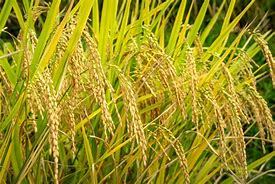Rice farmers in Nigeria have expressed deep concerns over the rapid decline of the country’s rice industry, citing the closure of local mills, job losses, and an influx of cheap foreign rice as major contributors.
Chairman of the Competitive African Rice Forum Nigeria,Peter Dama in a statement issued on Sunday, lamented the shutdown of processing facilities across the country, describing the impact on workers and farmers as devastating.
“Our mills have been shut down. We have retrenched workers. Is this the future for us in this country?” he asked.
Dama recalled a period when Nigeria’s rice production hit a peak of eight million metric tons, significantly reducing the need for imports and meeting most of the country’s consumption demands.
He attributed the current crisis to growing insecurity, particularly banditry and kidnappings, which have disrupted farming activities and discouraged farmers from cultivating rice.i
“It was after the rise in banditry and kidnapping that farming became challenging, and production suffered,” he said.
Addressing criticisms over the government’s past rice initiatives, Dama dismissed claims that the rice pyramids once showcased across states were merely propaganda tools.
“The pyramids were real. They were displayed in Abuja and other states as zonal exhibitions. Paddy was produced, distributed, milled, and payments were made accordingly,” he explained.
He also defended genuine rice farmers who benefited from government support, insisting that such beneficiaries used the assistance for the intended purpose of rice cultivation.
While noting that Nigeria once approached self-sufficiency in rice production, Dama clarified the gap between production and consumption.
“At one point, we reached about eight million metric tons. Our production capacity was around 5.3 million metric tons, while the national consumption stood at 8.5 million. But even that progress has now reversed,” he said.
He blamed the influx of cheap imported rice for worsening the crisis, claiming that foreign products are often smuggled in at extremely low prices due to tax evasion and foreign subsidies.
“Imported rice is cheaper because importers dodge taxes and get subsidies. Some bring it in at as low as $10 to $20 per ton,” he said.
As the 2027 general elections draw near, stakeholders warn that the continued collapse of the rice industry could have wider implications on the country’s socio-political stability.
“The loss of jobs, income, and opportunities for rural youth may trigger unrest in agricultural communities, fuel rural-urban migration, and increase disillusionment with public policies. This could ultimately threaten national unity,” the statement read.
Dama urged the Federal Government to act swiftly to revive the industry by eliminating selective import waivers on rice, reaffirming rice as a protected crop, and tightening border control to curb smuggling.
“All trade incentives must be transparent, time-bound, and equitable,” he said.
He also called for the creation of a national rice buffer stock to stabilise market prices, along with greater investment in irrigation, mechanisation, affordable inputs, and low-interest financing for farmers.
“We need irrigation to support all-year-round farming, access to affordable inputs, mechanised tools, and accessible financing options. That is the only way to bring back the rice industry,” Dama added.









